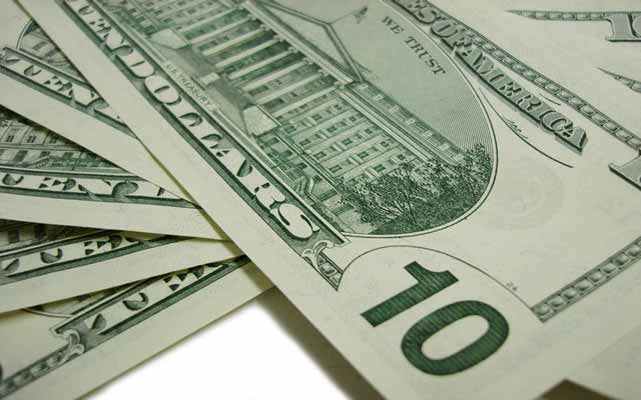Pound to Dollar Rate at 1.34 after Unprecedented BoE Vote
- Written by
Tim Boyer

The Pound Sterling exchange rates jumped on Thursday following a narrower-than-expected Bank of England (BoE) decision to lower interest rates.
At the time of writing, the Pound to Euro exchange rate (GBP/EUR) is trading at 1.1517, up 0.56%, while the Pound to Dollar exchange rate (GBP/USD) stands at 1.3419, marking a 0.46% gain on the day.
The vote split and inflation forecast triggered doubts whether the BoE would be able to cut rates again this year. The Pound could still be vulnerable on stagflation fears.
Governor Bailey still pointed to major elements of domestic and global uncertainty while the FTSE 100 index posted a loss of close to 1.0%.
The Pound to Euro (GBP/EUR) exchange rate jumped to 1.1520 from 1.1460 ahead of the vote.
ING commented; “EUR/GBP can linger in the 0.86-0.87 area a little longer, perhaps as the BoE rides out the run-up in headline inflation over the coming months with careful rhetoric. (1.1495 - 1.1630 for GBP/EUR). It still sees longer-term depreciation risks.
MUFG expects GBP/EUR to retreat to 1.1365 by the second quarter of 2025.
The Pound to Dollar (GBP/USD) exchange rate surged to 1.3430 and, after a limited correction hit 10-day highs at 1.3435.
According to ING the dollar is vulnerable and commented; “This could see GBP/USD pushing into the 1.36/38 area – assuming UK data does not deteriorate too dramatically in the last quarter.”
The BoE Monetary Policy Committee (MPC) cut interest rates by 25 basis points to a 2-year low of 4.00% which was in line with strong market expectations.
There was, however, another surprise surrounding the voting process.
In an initial vote, Governor Bailey, together with Ramsden, Breedon and Dhingra voted to cut rates by 25 basis points while Taylor wanted a 50 basis-point cut.
Chief economist Pill, alongside Mann, Greene and Lombardelli voted for no change in rates.
Given the 4-4-1 vote, a second ballot was required with Taylor backing the smaller cut and this resulted in a 5-4 vote to cut rates by 25 basis points.
This was the first time since bank independence that a second vote had been required.
The bank raised its peak inflation forecast to 4.0% in September compared with 3.7% previously and the 1-year inflation projection was increased to 2.7% from 2.4% previously.
The bank is uneasy over inflation trends and noted second-round risks; “the Committee remains alert to the risk that this temporary increase in inflation could put additional upward pressure on the wage and price-setting process.”
It added; “Overall, the MPC judges that the upside risks around medium-term inflationary pressures have moved slightly higher since May.”
There were no significant changes in growth forecasts with GDP forecast to increase 1.2%, 1.3% and 1.5% in 2025,2026 and 2027 respectively.
According to the bank, there is slack in the economy; “the MPC judges that the economy is operating with a degree of spare capacity. The margin of spare capacity is projected to widen a little further over the next few quarters.”
There was little net change in guidance with comments that; “A gradual and careful approach to the further withdrawal of monetary policy restraint remains appropriate.”
According to Bailey; “I’ll be honest with you, the point I was making is that I think that the path has become more uncertain, because of what we are seeing.”
Following the decision, markets were less confident that the BoE would be able to cut rates again this year with the chances of a further move cut to near 70%.
The UK 10-year bond yield increased to 4.58% from 4.53% ahead of the decision.
Aberdeen deputy chief economist Luke Bartholomew still expects further rate cuts; “It will be difficult for the Bank to give clear guidance about the likely path of rates from here given the messy data and divided MPC. But in the end, we expect the weakness of growth to win out, and for the Bank to cut rates again later this year, and then through next year as well.”
Investec Chief Economist Philip Shaw added; "We are still for now forecasting a 25-bp cut to rates in November, but clearly we could be looking at a another very finely balanced decision and the outturn will of course depend on the data between then and now."
Higher bond yields will create further concerns over fiscal trends.
MUFG focussed on the prospect of further tax increases to fund a potential £40bn tightening needed to meet fiscal rules. It noted; “This is a huge requirement and will be politically difficult and would certainly potentially open up scope for the MPC to ease policy more quickly given the disinflationary consequences of such a large tax hike.”
The bank added; “We expect the pound to continue to underperform and we see the best avenue to shorting the pound being via the euro. Tax hikes are a certainty in the autumn which is likely already shaping consumer and business behaviour. Greater appetite for savings amongst households and a reluctance to hire and invest by companies seem set to continue.”
STORY LINK Pound to Dollar Rate at 1.34 after Unprecedented BoE Vote

The Pound Sterling exchange rates jumped on Thursday following a narrower-than-expected Bank of England (BoE) decision to lower interest rates.
At the time of writing, the Pound to Euro exchange rate (GBP/EUR) is trading at 1.1517, up 0.56%, while the Pound to Dollar exchange rate (GBP/USD) stands at 1.3419, marking a 0.46% gain on the day.
The vote split and inflation forecast triggered doubts whether the BoE would be able to cut rates again this year. The Pound could still be vulnerable on stagflation fears.
Governor Bailey still pointed to major elements of domestic and global uncertainty while the FTSE 100 index posted a loss of close to 1.0%.
The Pound to Euro (GBP/EUR) exchange rate jumped to 1.1520 from 1.1460 ahead of the vote.
ING commented; “EUR/GBP can linger in the 0.86-0.87 area a little longer, perhaps as the BoE rides out the run-up in headline inflation over the coming months with careful rhetoric. (1.1495 - 1.1630 for GBP/EUR). It still sees longer-term depreciation risks.
MUFG expects GBP/EUR to retreat to 1.1365 by the second quarter of 2025.
Save on Your GBP/USD Transfer
Get better rates and lower fees on your next international money transfer. Compare TorFX with top UK banks in seconds and see how much you could save.
According to ING the dollar is vulnerable and commented; “This could see GBP/USD pushing into the 1.36/38 area – assuming UK data does not deteriorate too dramatically in the last quarter.”
The BoE Monetary Policy Committee (MPC) cut interest rates by 25 basis points to a 2-year low of 4.00% which was in line with strong market expectations.
There was, however, another surprise surrounding the voting process.
In an initial vote, Governor Bailey, together with Ramsden, Breedon and Dhingra voted to cut rates by 25 basis points while Taylor wanted a 50 basis-point cut.
Chief economist Pill, alongside Mann, Greene and Lombardelli voted for no change in rates.
Given the 4-4-1 vote, a second ballot was required with Taylor backing the smaller cut and this resulted in a 5-4 vote to cut rates by 25 basis points.
This was the first time since bank independence that a second vote had been required.
The bank raised its peak inflation forecast to 4.0% in September compared with 3.7% previously and the 1-year inflation projection was increased to 2.7% from 2.4% previously.
The bank is uneasy over inflation trends and noted second-round risks; “the Committee remains alert to the risk that this temporary increase in inflation could put additional upward pressure on the wage and price-setting process.”
It added; “Overall, the MPC judges that the upside risks around medium-term inflationary pressures have moved slightly higher since May.”
There were no significant changes in growth forecasts with GDP forecast to increase 1.2%, 1.3% and 1.5% in 2025,2026 and 2027 respectively.
According to the bank, there is slack in the economy; “the MPC judges that the economy is operating with a degree of spare capacity. The margin of spare capacity is projected to widen a little further over the next few quarters.”
There was little net change in guidance with comments that; “A gradual and careful approach to the further withdrawal of monetary policy restraint remains appropriate.”
According to Bailey; “I’ll be honest with you, the point I was making is that I think that the path has become more uncertain, because of what we are seeing.”
Following the decision, markets were less confident that the BoE would be able to cut rates again this year with the chances of a further move cut to near 70%.
The UK 10-year bond yield increased to 4.58% from 4.53% ahead of the decision.
Aberdeen deputy chief economist Luke Bartholomew still expects further rate cuts; “It will be difficult for the Bank to give clear guidance about the likely path of rates from here given the messy data and divided MPC. But in the end, we expect the weakness of growth to win out, and for the Bank to cut rates again later this year, and then through next year as well.”
Investec Chief Economist Philip Shaw added; "We are still for now forecasting a 25-bp cut to rates in November, but clearly we could be looking at a another very finely balanced decision and the outturn will of course depend on the data between then and now."
Higher bond yields will create further concerns over fiscal trends.
MUFG focussed on the prospect of further tax increases to fund a potential £40bn tightening needed to meet fiscal rules. It noted; “This is a huge requirement and will be politically difficult and would certainly potentially open up scope for the MPC to ease policy more quickly given the disinflationary consequences of such a large tax hike.”
The bank added; “We expect the pound to continue to underperform and we see the best avenue to shorting the pound being via the euro. Tax hikes are a certainty in the autumn which is likely already shaping consumer and business behaviour. Greater appetite for savings amongst households and a reluctance to hire and invest by companies seem set to continue.”
International Money Transfer? Ask our resident FX expert a money transfer question or try John's new, free, no-obligation personal service! ,where he helps every step of the way, ensuring you get the best exchange rates on your currency requirements.
TAGS: Pound Dollar Forecasts
Comments are currrently disabled
Related Stories:
- Pound to Dollar Exchange Rate Slides as Technical Support Fails - February 20, 2026
- GBP/USD Price Forecast: Pound Sterling Firms After Fed Minutes - February 19, 2026
- Pound Sterling to Dollar Forecast: GBP Finds Support as BoE Cut Bets Rise - February 19, 2026
- GBP/USD Forecast: Pound Sterling Steady despite Softer UK Inflation - February 18, 2026
- Pound to Dollar Forecast: GBP Tests 10-Day Lows Before Stabilising - February 18, 2026
- GBP to USD Forecast: Pound Sterling Drops on Rising UK Unemployment - February 17, 2026
- Pound Sterling to Dollar Forecast: GBP Slips after Soft UK Jobs Data - February 17, 2026
- GBP/USD Forecast: Pound Sterling Flat as Traders Await Key UK Labour Data - February 16, 2026
- Pound to Dollar Forecast: Politics, Fed Policy and Structural USD Trends Collide - February 16, 2026
Latest News:
- British Pound to Euro Forecast: GBP Supported as UK Retail Sales Surge - February 20, 2026
- Pound to Dollar Exchange Rate Slides as Technical Support Fails - February 20, 2026
- Pound-Euro Flat - February 19, 2026
- GBP/USD Price Forecast: Pound Sterling Firms After Fed Minutes - February 19, 2026
- Pound Sterling to Dollar Forecast: GBP Finds Support as BoE Cut Bets Rise - February 19, 2026
- British Pound to Euro Forecast: Inflation Falls, Yet GBP Vulnerable - February 19, 2026
- GBP/USD Forecast: Pound Sterling Steady despite Softer UK Inflation - February 18, 2026
- Pound to Euro Rebounds - February 18, 2026
- Pound to Dollar Forecast: GBP Tests 10-Day Lows Before Stabilising - February 18, 2026
- British Pound to Euro Forecast: GBP Recovers on "Mixed" UK Inflation - February 18, 2026









